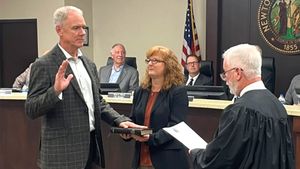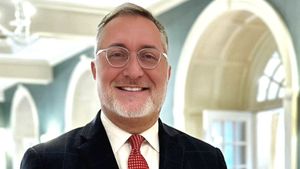A new study from the University of Southern California found immense benefits from periodic fasting, where people eat a very reduced diet for five days a month.
"Cycles of a diet that mimics fasting can reduce signs of immune system aging, as well as insulin resistance and liver fat in humans, resulting in a lower biological age," according to a statement from the USC Leonard Davis School of Gerontology.
Researchers refer to the diet as a fasting-mimicking diet (FMD) and describe it as high in unsaturated fats and low in overall calories, protein, and carbohydrates. Participants in the study, who ranged in age from 18 to 70, ate a FMD "composed of plant-based soups, energy bars, energy drinks, chip snacks and tea portioned out for five days as well as a supplement providing high levels of minerals, vitamins and essential fatty acids." Control group participants consumed a regular diet or a Mediterranean-style diet.
The study followed people for three or four month cycles, with five days of each month carved out for FMD. The results showed a huge range of benefits, with lower diabetes risk factors, a decrease in abdominal fat as well as fat within the liver, improvements associated with a reduced risk of metabolic syndrome. FMD cycles also increased the lymphoid-to-myeloid ratio, "an indicator of a more youthful immune system," according to USC researchers. FMD participants reduced their biological age by 2.5 years on average, with their cells and tissue functioning better than before than before the fast-like diet. Researchers were impressed by the many signs of improved health that occurred without prescriptions or other major medical interventions.
“This is the first study to show that a food-based intervention that does not require chronic dietary or other lifestyle changes can make people biologically younger, based on both changes in risk factors for aging and disease and on a validated method to assess biological age,” Study author Valter Longo said in a statement. “Although many doctors are already recommending the FMD in the United States and Europe, these findings should encourage many more health care professionals to recommend FMD cycles to patients with higher than desired levels of disease risk factors as well as to the general population that may be interested in increased function and younger age.”












































































